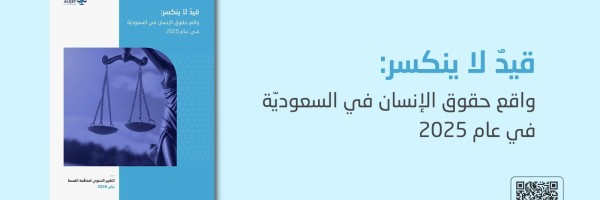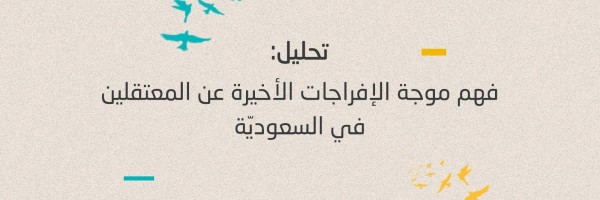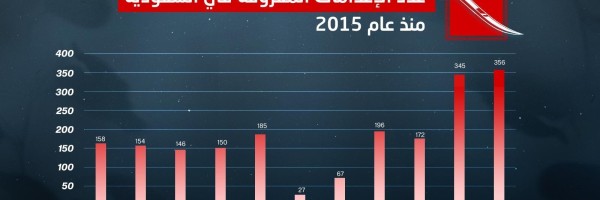Critically ill cancer patient Mohammed Saleh al-Khudari is being held in life-threatening conditions in Abha Prison, where the authorities are denying him essential medical treatment and making it impossible for him to maintain personal hygiene or even eat normally. The courts have agreed that in view of his deteriorating condition he can be released on medical grounds and placed under house arrest, but the Saudi state security authorities have as yet not implemented the court order.
Mohammed al-Khudari is a leading Palestinian official and long-term resident of Saudi Arabia who was undergoing post-operative cancer treatment at the time of his arbitrary arrest in April 2019. He was brought before the Specialised Criminal Court (SCC) on 8 March 2020, along with 67 other Palestinians and Jordanians associated with the Palestinian cause, at the start of a mass trial that has been marred by numerous violations of international fair trial guarantees. These individuals, who are currently awaiting sentencing, have been subjected to numerous violations in detention since their mass arrest early in 2019, including months of enforced disappearance, long periods in solitary confinement, and torture. Several of them have been denied adequate medical care in prison for chronic ailments including diabetes, hypertension and arthritis.
The 84-year-old al-Khudari has prostate cancer, and his condition worsened once he stopped getting even the limited treatment he was previously given in Dhahban Prison. Now, after a long gap without any treatment, his body would no longer respond to it and he will need more radical intervention in the form of chemo- or radiotherapy. At one point he was taken to hospital to have a cortisone injection for pain relief, but he was brought back to prison without it having been administered.
Al-Khudari also suffers from other untreated medical complaints including incontinence, which is preventing him from being able to carry out his ablutions adequately to perform his prayers. He has also lost a dental bridge, which is affecting his speech and ability to eat.
His family are seriously concerned for him and fear that his life is in danger as a result of this gross neglect on the part of the Saudi authorities. Meanwhile, al-Khudari’s son Hani al-Khudari, who is also in detention, has gallstones that require surgery before they get worse and spread to his ureter.
Al-Khudari’s treatment is part of a pattern of harassment to which prisoners of conscience are frequently subjected in Saudi Arabia, and illustrates the contempt in which the authorities hold prisoners’ lives. They deliberately make life difficult for them and deny them their basic rights, including access to medical treatment, even behind bars. An extreme example of this was the death last year of iconic human rights defender Abdullah al-Hamid, who died on 23 April 2020 at the King Saud Medical City Hospital after suffering a cerebral stroke in prison on 9 April, as a result of repeated ill-treatment and denial of medical treatment by the Saudi authorities. Other detainees currently at risk include cleric Salman al-Odah, whose health has sharply declined in prison, including the loss of almost half of his ability to hear and see. Al-Odah has experienced severe ill-treatment in prison since his arbitrary arrest in September 2017, including being denied medication for high blood pressure and high cholesterol.
ALQST calls for immediate implementation of the court order granting Mohammed al-Khudari’s release on medical grounds; for all detainees in Saudi prisons to receive the medical treatments and medication they require, as well as basic healthcare of the same standard as the general population; and for an end to the harassment and ill-treatment of prisoners of conscience, who should be immediately and unconditionally released.




